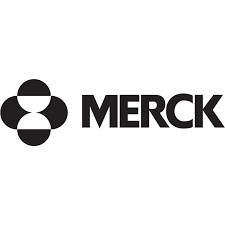Merck and Co. Q3 2024 $MRK (-0.21%)

Financial performance
- SalesMerck recorded total global sales of USD 16.7 billion in the third quarter of 2024, an increase of 4% compared to the prior-year period. Excluding currency effects, growth amounted to 7%.
- Net incomeGAAP net income for the third quarter was $3,157 million, a decrease of 33% compared to the prior year period.
- Earnings per share (EPS)GAAP EPS decreased to USD 1.24, compared to USD 1.86 in the third quarter of 2023.
Income statement
- Cost of salesIncreased to USD 4,080 million compared to USD 4,264 million in the previous year, a decrease of 4%.
- Research and development (R&D)R&D expenses increased by 77% to USD 5,862 million, mainly due to acquisitions and related costs.
- Selling, general and administrative expenses (SG&A)SG&A expenses increased by 8 % to 2,731 million US dollars compared to the previous year.
Key figures and profitability metrics
- Gross marginGAAP gross margin was 75.5% in the third quarter of 2024 compared to 73.3% in the previous year.
- Effective tax rateThe effective tax rate amounted to 22.7% in the third quarter of 2024.
Segment information
- Pharma sales: Increased by 5 % to USD 14,943 million. Keytruda sales grew by 17 % to USD 7,429 million.
- Gardasil/Gardasil 9: Sales fell by 11 % to USD 2,306 million, mainly due to lower demand in China.
Competitive position
Merck continues to show strong growth, driven by Keytruda, new product launches and the Animal Health business.
Forecasts and management commentary
- Full-year sales guidanceMerck expects full-year sales to be between $63.6 billion and $64.1 billion, including a negative currency impact of approximately 3 percentage points.
- Non-GAAP EPS guidance: EPS is expected to be between USD 7.72 and USD 7.77, also impacted by a negative currency effect of approximately USD 0.30 per share.
Risks and opportunities
- RisksChallenges include declining sales of Januvia and Janumet and lower demand for Gardasil in China.
- OpportunitiesGrowth opportunities arise from the increased use of Keytruda worldwide and contributions from new product launches such as Winrevair and Capvaxive.
Summary of results
Merck's performance in the third quarter of 2024 shows a moderate increase in sales, mainly driven by Keytruda and new product launches, although there were challenges in certain segments such as Gardasil. The company is investing heavily in R&D, which is reflected in the significant increase in expenditure. The outlook for the year remains positive, with expected sales growth and a strategic focus on expanding the product pipeline. Nevertheless, currency effects and competition in some markets continue to pose risks.
Positive aspects
- Sales growth: Total global sales rose by 4% to USD 16.7 billion in the third quarter of 2024, with growth excluding currency effects amounting to 7%.
- Keytruda performanceKeytruda sales increased by 17% to USD 7.4 billion, driven by increased global utilization in earlier indications and high demand in metastatic indications.
- Animal Health segmentSales in the Animal Health segment increased by 6 % to USD 1.5 billion, or 11 % excluding currency effects.
- Improved non-GAAP gross margin: The non-GAAP gross margin increased from 77.0% in the previous year to 80.5%, mainly due to a favorable product mix.
- Strategic acquisitionsMerck completed the acquisition of CN201 (MK-1045) from Curon Biopharmaceutical, which is expected to strengthen the portfolio and support future growth.
Negative aspects
- Decline in net incomeGAAP net income decreased by 33% year-on-year to USD 3,157 million.
- Decline in Gardasil salesGardasil/Gardasil 9 sales decreased by 11% to USD 2,306 million, mainly due to lower demand in China.
- Increased R&D expenditureR&D expenses increased by 77% to USD 5.9 billion due to costs related to acquisitions and higher clinical development expenses.
- Decrease in non-GAAP EPSNon-GAAP EPS decreased to USD 1.57 compared to USD 2.13 in the third quarter of 2023, impacted by expenses related to business transactions.
- Currency impactThe company was impacted by negative currency effects, particularly the depreciation of the Argentine peso, which negatively impacted overall performance.



